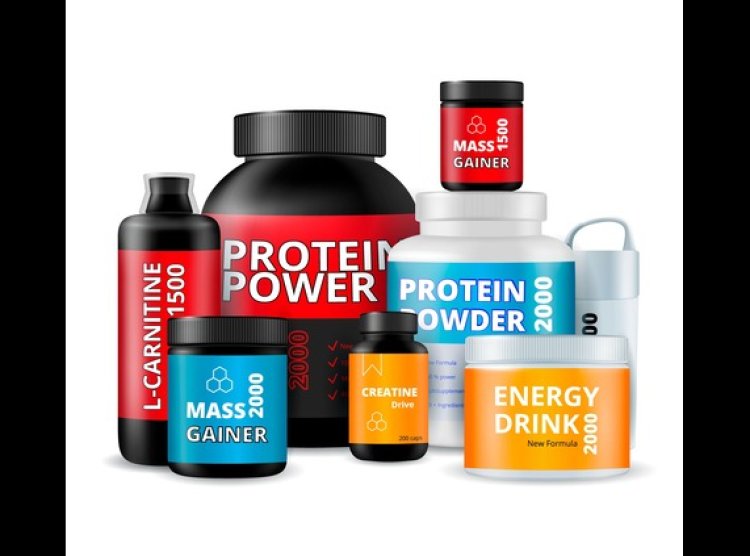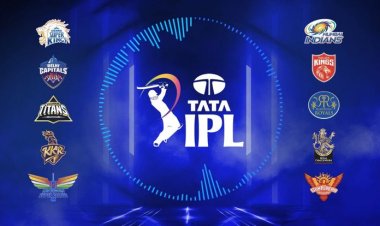FSSAI Flexes Muscles; Protein Supplements Face Stricter Scrutiny
New regulations target counterfeit products and deceptive marketing, aiming to ensure safety and accuracy in India's booming protein supplement market

The Food Safety and Standards Authority of India (FSSAI) is gearing up to introduce stricter regulations on protein supplements. This move follows an extensive study revealing that many products sold in retail stores, gymnasiums, and online platforms often feature misleading health claims and inaccurate nutritional information.
These new guidelines may also lead to the banning of non-compliant products, according to industry reports. The protein supplement market in India is plagued by counterfeit products and deceptive marketing practices, posing serious health risks to consumers.
A recent study published in the peer-reviewed journal Medicine found that nearly 70% of 36 popular supplements sold in India contained incorrect protein information. Some brands offered only half of what they claimed. Additionally, approximately 14% of the samples contained harmful fungal aflatoxins, and 8% showed traces of pesticide residue.
In 2022-23, over 40,000 cases were filed against unsafe protein powders and dietary supplements that did not meet food safety standards, according to the Union Health Ministry. With the growing relevance of protein supplements among fitness and bodybuilding enthusiasts, it was only a matter of time before authorities intervened.
Industry sentiment appears to support the new regulations. Himmath Jain, co-founder and director of AS-IT-IS Nutrition, believes the new rules will improve standards and safety in the category while weeding out substandard products. He notes that stricter regulations will help ensure consumers receive safe, effective, and high-quality products.
Jain also suggests that while established brands might benefit from these regulations, new entrants will face significant challenges. Compliance will require substantial investment in quality control, raising barriers to entry. Established brands, already adhering to high standards, may experience minimal impact and possibly even gain from reduced competition.
Chetan Kanani, CEO and co-founder of Alpino Health Foods echoes this sentiment, stating that established brands, which often follow US and European guidelines, will be less affected. However, new brands will find it harder to register and approve their products. Kanani points out that reputable brands are already taking measures to prevent counterfeiting by offering verifiable QR codes, product codes, and post-purchase verification methods. He advises consumers to buy supplements directly from brand websites or authorized sellers to avoid counterfeit products.
Consumer skepticism is high due to the prevalence of fake products. A glance at protein powder products on e-commerce platforms shows varying degrees of dissatisfaction with sub-par quality or outright fake products. Given this consumer sentiment, marketing for protein supplements relies heavily on word of mouth. Trustworthy testimonials from peers, trainers, and friends are crucial for building credibility in the health and nutrition sector.
The rise of fitness influencers has significantly boosted the fitness and protein supplement industries. Digital-first brands and influencers from the health and wellness space are driving growth in this sector. India's protein market, valued at USD 1.40 billion in 2024, is expected to grow by 6.07% by 2029, driven by increasing health awareness, consumer knowledge, the COVID-19 push, and influencer impact.
Praful Akali, founder of Medulla Communications, emphasizes that protein supplements cater to a refined and aware consumer base. Marketing must focus on product quality, ease of digestion, robust certifications, and testing. Word of mouth, social media and YouTube influencers, gym instructors, retail recommendations, and consumer or industry certifications all play key roles in marketing.
Despite the challenges, Akali notes a fundamental problem with many brands in the market: negative reviews mixed with incentivized positive reviews. He suggests that brands should invest in research and ingredient sourcing instead of paid reviews to build genuine consumer loyalty and trust.
The FSSAI's upcoming regulations aim to clean up India's protein supplement market, ensuring that consumers have access to safe, effective, and high-quality products. Established brands may benefit, while new entrants will need to invest significantly to comply with the new standards.

 Sumit Rawat
Sumit Rawat 










